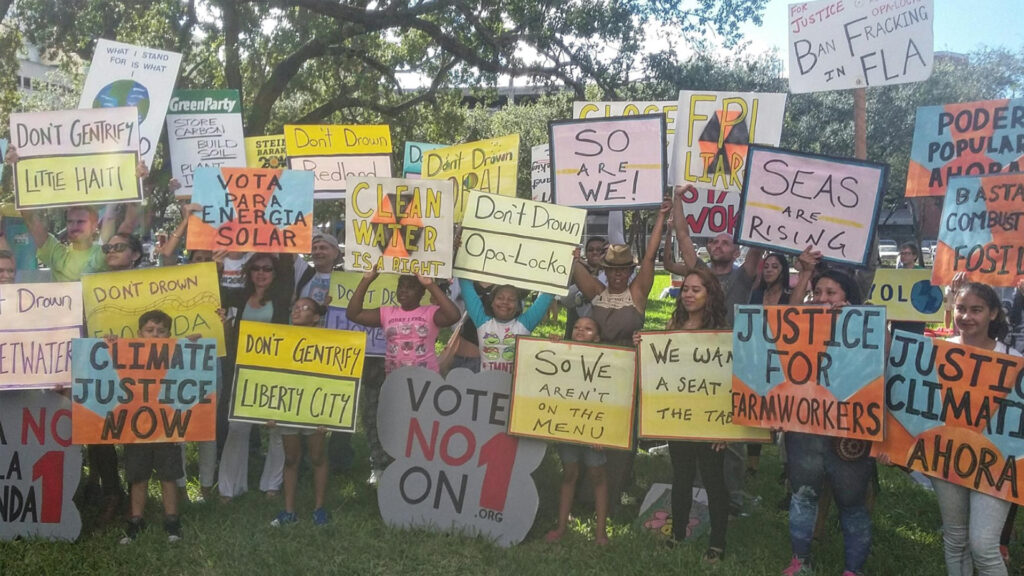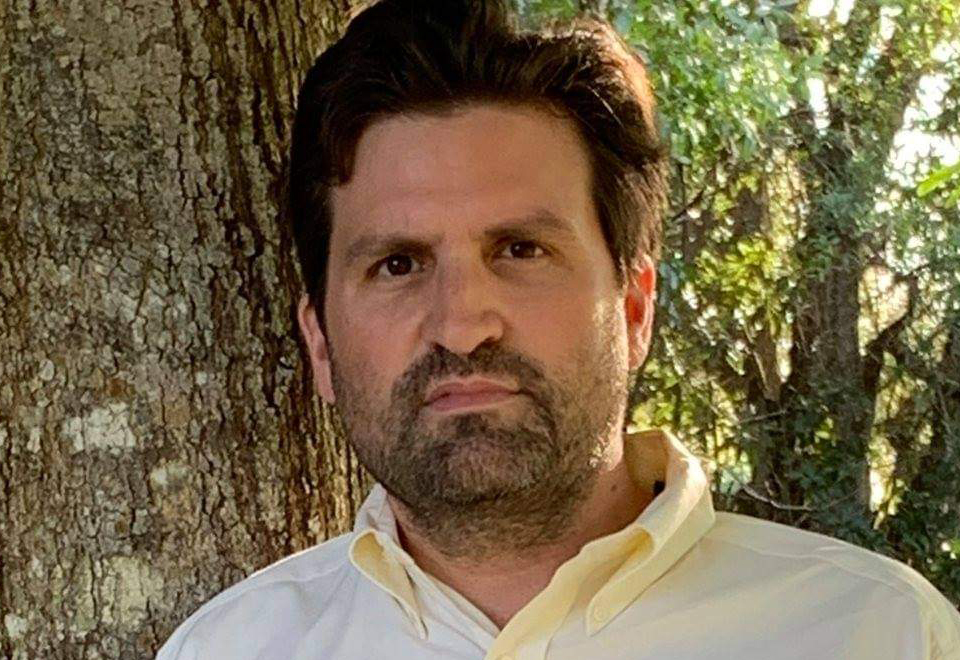By David Vaina
The Green Party of Florida, with approximately 10,000 registered voters in a state with more than 14 million registered voters, is well aware of its outlier status in our increasingly one-party state.
There’s also its litany of environmental problems in Florida that make it even hard to know where a party rooted in ecological principles should even begin: agricultural runoff, ecosystem collapse, sugar field burning around the Everglades, phosphate mining and an insurance crisis that the Green Party of Florida (GPF) projects to worsen with continuing development along coasts and other vulnerable areas.
“Give those lands back to Mother Nature and never build again,” said Steve Showen, GPF spokesperson.

Indeed, the GPF is a small party with big dreams. It has a vision for how simple, inexpensive practices people can do at home – such as permaculture, producing biochar, making compost tea for gardens and small farms – can help repair degraded lands and accelerate carbon sequestration.
If scaled up across the state, these practices and others would demonstrate “we mean business” addressing climate change in Florida, said Aaron Frost, GPF treasurer and a self-declared “permaculture nerd.”
We want to “create a parallel economy” that will help Floridians survive the long-term ramifications of climate change – and even “an apocalypse,” Showen said.
But how can the GPF tactically advance that vision from a still-small, backyard democracy to shaping statewide policy in the governor’s mansion and state legislature?
The GPF operates on a shoe-string budget with no staff. It also has a policy that refuses all corporate donations, which likely limits its capacity to run ads, hire lobbyists and consultants, and execute all the other tricks of the trade that major parties do without the GPF’s ethical concerns about corporate influence.
The GPF also struggles with how to engage its membership in non-presidential election years when people typically tune out from the nuts and bolts of building a viable, competitive political organization for the long haul.
In a Zoom interview I conducted with Showen, Frost and Steve Newman (GPF secretary), they frequently referred to the GPF not as a party but as a “movement.”
A little less than a decade ago, the GPF actively supported the protests in opposition to the construction of the Sabal Trail Transmission Pipeline that included a number of protester arrests. Currently, the GPF is lending a hand to the “Florida Right to Clean Water” campaign to add a new amendment to the state constitution codifying a fundamental right to healthy water in the state.
The GPF sees social movements around climate justice and other environmental issues, or “people power” as it also describes these movements, as the conduits for building the party. “How do we (sustain) the energy to build a wider movement? People want to do something – if we can crack that nut,” Showen said.
Alongside its involvement with protests and grassroots campaigns, the GPF is thinking in more traditional terms. It aims to have an affiliate active in each of Florida’s 67 counties. It wants to start running candidates in local elections. And it would like to advocate for more state funding for scientific research on emerging practices like permaculture that have largely been marginalized by the dominant agriculture industry in Florida.
Perhaps surprisingly, the GPF points toward Donald Trump’s appeal as an outsider to understanding Americans’ disillusionment with a traditional two-party politics beholden to a “corporate oligarchy.” The GPF dismisses former President Joe Biden’s $370 billion clean energy package through the Inflation Reduction Act as a mere “PR stunt” because the law, for instance, mandates oil and gas drilling on public lands.

As dire as things seem right now for Florida’s environmental movement, the GPF regards this collective disgust with business as usual – both from Democrats and Republicans – as an opportunity. Jill Stein, the national party’s 2024 presidential candidate who advocated for policies that would lead to “100% clean energy, zero greenhouse gas emissions, and economic security for all within a decade,” finished third in Florida.
And more than six in 10 Americans say we need a third party.
Whether the GPF can spread its wings in Florida and realize political success in measurable terms is uncertain. But I’d think a critical mass of Floridians already share its bottom-up commitment to a “people power” that refuses to wait for government and corporations to show us the way toward healing our state before it’s too late.
David Vaina has a Ph.D. in political theory and has helped fund, develop and operate Florida nonprofits over the last 15 years. He currently serves as chair for the Suwannee-St. Johns Group of the Sierra Club and lives in rural north Florida. Banner photo: Green Party of Florida protest in Miami for solar power. (Photo courtesy of Green Party of Florida).
Sign up for The Invading Sea newsletter by visiting here. To support The Invading Sea, click here to make a donation. If you are interested in submitting an opinion piece to The Invading Sea, email Editor Nathan Crabbe at ncrabbe@fau.edu.




It’d be nice to mention our website for more information:
http://www.gpfl.org
Jennifer Sullivan
Spokesperson for GPFL